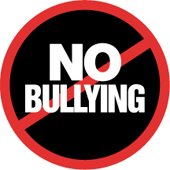 A Florida law praised nationally as a landmark step against bullying is falling far short in its most basic of goals: To get schools to report bullying incidents.
A Florida law praised nationally as a landmark step against bullying is falling far short in its most basic of goals: To get schools to report bullying incidents.
The Jeffrey Johnston Stand Up for All Students Act does a lot more than simply encourage schools to report bullying. It also requires local school districts to adopt policies against both in-person bullying and cyber-bullying, or else to risk the loss of state funding.
But data from the Florida Department of Education shows that schools recorded barely 6,000 incidents of bullying last year — far fewer than experts say are likely to have occurred among the state’s 2.6 million students.
That’s a tiny fraction of the number of incidents likely to have occurred. According to the U.S. Department of Education, some 13 million are bullied annually in the nation. And just this week a large-scale survey in Minnesota found that half of all public school students surveyed reported having been bullied, and that the number of students bullied there regularly is likely to be around 100,000. Minnesota has less than one-third the population of Florida.
Debbie Johnston, a teacher whose 15-year-old son killed himself in 2005 after suffering at the hands of bullies, led the push for the 2008 legislation in Florida. But she told The Miami Herald on Monday that she was disappointed at the lack of rigor with which school administrators are following the law: “When you look at a school and you see they’re not reporting anything, then we know they’re failing. Teachers have a moral and legal obligation to know what is going on in their schools.”
Legislation can either prohibit or authorize discreet and definable acts of conduct. “Bullying” defies a definition. This means that a statutory approach to bullying is inherently flawed. After all, one person’s horseplay is another’s act of bullying.